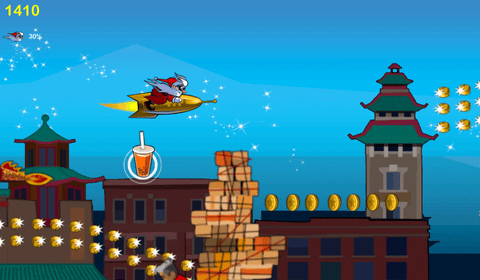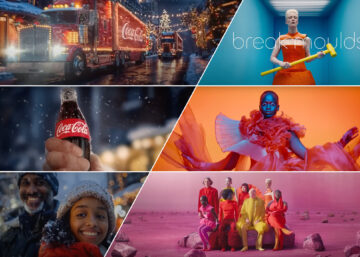Marketing
For B2B brands, it’s time to get serious about fun and games
 B2B marketing has evolved. It’s moved beyond simply promoting technical specifications, benefits and features to truly engaging customers and decision makers. LinkedIn’s 2024 B2B benchmark report, The B2B Marketing Organization of Tomorrow finds that 67% of B2B marketers are increasing budgets for brand-building efforts, while 9 in 10 chief marketing officers advocate for bolder creative campaigns.
B2B marketing has evolved. It’s moved beyond simply promoting technical specifications, benefits and features to truly engaging customers and decision makers. LinkedIn’s 2024 B2B benchmark report, The B2B Marketing Organization of Tomorrow finds that 67% of B2B marketers are increasing budgets for brand-building efforts, while 9 in 10 chief marketing officers advocate for bolder creative campaigns.
Gaming is one brand-building opportunity quickly moving to the forefront of marketing strategies and B2B marketers need to pay attention. The gaming experience creates a high-level of brand engagement and loyalty among players. According to the online publication business.com, “The gaming industry offers many lessons that businesses in any sector can apply to their marketing efforts. By engaging your customers through interactive storytelling, building an active community, creating customer loyalty programs, and ensuring your brand and content remain relevant, you’ll be taking steps to improve your marketing and ultimately grow your business.”
Consumer brands have actively jumped on the gaming bandwagon for two good reasons: Size of reach and level of engagement. Statista, the data collection platform, states that the video game market generated $250 billion worldwide in 2023 and is estimated to grow to $282 billion in 2024. Its market size is 9-times larger than the worldwide music industry ($28.6 billion in 2023) and is on par with the global film and video market ($285 billion in 2023).
In terms of engagement, the Entertainment Software Association (ESA) reports that 61% of the U.S. population plays video games more than one hour a week. The average age of the player is 36, with 53% identifying as male and 46% identifying as female. And the engagement level goes beyond brand awareness according to a 2023 Forbes report on the gaming industry by venture capitalist Krishan Arora. In the report, Arora states: “Today it’s fairly common to see popular brands and celebrities making appearances within the virtual gaming world. These crossover collaborations allow fans to build a deeper connection and affinity, creating even more brand loyalty within these global digital communities.”
Are your B2B customers playing video games?
There are a number of studies that look at who’s playing video games by their professions. If your customers are engineers, take heart to know they are active gamers. The Journal of Technology and Science Education found that 91.3% of engineering students play video games frequently, a habit that is expected to continue throughout their adulthood.
For medical professionals, research has tied gaming to higher skill levels and is becoming part of their medical training. The Beth Israel Medical Center conducted a study to learn if over-the-counter video games help surgeons strengthen their skills. According to the study’s results, “Doctors who possessed video game skills, such as fine motor control and reaction time, showed increased speed and reduced errors in laparoscopic surgeries. Surgeons who played video games for more than 3 hours/per week demonstrated better accuracy in their surgical skills.”
Types of opportunities
If competition for brand loyalty is important to your business growth, you need to consider how gaming will strengthen your marketing mix. Max Albert, CEO of Adrenaline Interactive, an in-game advertising software company, recommends B2B companies add simple games to boost attendance at their trade show booths. “The best strategy for a brand manager is to create their own game around the conference or trade show they are attending,” Albert says. “The game can focus on the actual conference or topics most relevant to the brand. Users can access the game by simply using a QR code.”
Gaming is like other powerful marketing platforms, one size doesn’t fit all. There are a number of options for strengthening brand awareness through a game. They include product placement, brand integration, creating your own game (advergaming), and dynamic in-game advertising. In addition, a new technology is being developed in 2025 called “endemic plus” advertising according to Albert. “Endemic plus advertising allows marketers to place their product or brand in video games based on demographics of the gamers,” Albert says. “You can put your brand in front of 10,000 people according to your target demographics for a specified period of time.”
Gaming offers tremendous opportunities for brand engagement. However, it is uncharted waters for most marketing executives. Vertical is here to help. We will help you sort through your options and develop the right gaming strategy for your brand.

